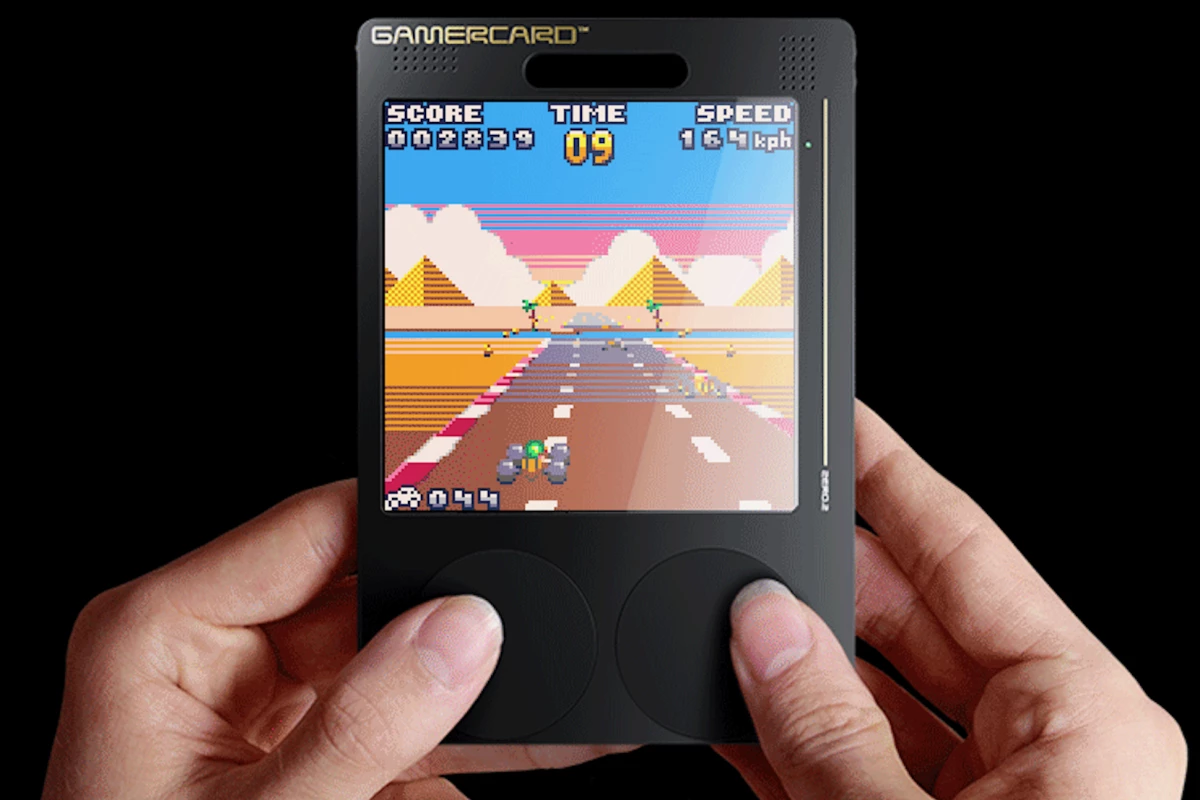Why just buy a gift card for games, if you can buy an actual handheld gaming console which is (roughly) the same shape and size? That's the thinking behind the Raspberry-Pi-packin' GamerCard, which has an interesting pedigree.
Putting it simply, the GamerCard is a 128 x 88 x 6.5-mm, 100-gram (3.5-oz) pocketable slab that allows users to play games on the go. It's the brainchild of British inventor/tech entrepreneur Grant Sinclair, who previously brought us the sharp-looking Iris eTrike electric-assist velomobile.
His uncle, Sir Clive Sinclair, was the mastermind behind the the famous Sinclair C5 pedal-electric trike back in the 80s. Among other things, he was also the creator of two of the earliest home computers, the ZX-81 and Spectrum. Sir Clive's son Crispin more recently developed the Babel Bike, which he touted as being "the world's safest bicycle."

The GamerCard is aimed at "retro fans, developers, and educators alike," and comes preloaded with two games – the action platformer Bloo Kid 2 and space shooter AstroBlaze DX. It also comes with the Pi Game app, which provides access to third-party Raspberry-Pi-optimized games, plus it can play thousands of other classic games via third-party emulator apps. Users can additionally create and share their own "mini retro-style games" using the PICO-8 app, which is sold separately.
Hardware-wise, the GamerCard features a 4-inch, 254-ppi full-color IPS display; two mini loudspeakers and two monoblock amps for stereo sound; and two silicone control pads on the front along with control switches and pushbuttons on the back and sides.
Its brain takes the form of a Raspberry Pi Zero 2 W microcomputer with a 64-bit quad-core ARM Cortex-A53 processor, Bluetooth 4.2, Wi-Fi connectivity, and 128 GB of internal memory. Power is provided by a 1,600-mAh lithium-polymer battery, although there's currently no word on runtime.

Should you want a GamerCard of your own, you can order one now from the Grant Sinclair company website for £125 (about US$168). Delivery should take eight to 10 weeks.
Plans also call for racks of the devices to be distributed to stores, allowing them to be grabbed and purchased on impulse … just like gift cards.
Source: Grant Sinclair








